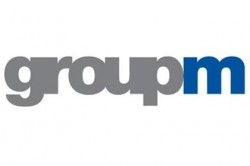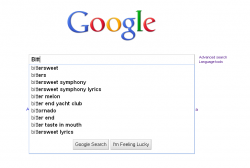Weekly News Roundup (19 June 2011)
The NPD stats for US video game sales for the month of May has been released, or rather, leaked, and so for one more month, the NPD analysis can be compiled. NPD’s releasing policy really is quite annoying. I can understand them not releasing the figures because commercial reasons, such as if they wanted to charge people access to them, but everyone knows they’re holding out due to industry pressure. The whole point of compiling sales data is to try and present an accurate and non subjective view of the health of the industry, so for NPD to cave in to industry pressure because the industry doesn’t like the results, is, totally counter-productive. It’s like financial analysts only providing analysis that paints a rosy picture, because otherwise it might anger the companies and sectors they’re analysing, which then causes things like financial bubbles and eventual market collapse. Oh.
Anyway, analysts this time are the heroes for leaking the NPD data, and it’s just as well, because this week’s news is a bit on the light side. And it’s even rant worthy like last week either, so I think we can get through this pretty quickly (says the guy who then writes 2000 words).
 In copyright news this week, we have a couple of stories, involving advertisers, Google, extradition and copyright trolls. You know, the usual lineup.
In copyright news this week, we have a couple of stories, involving advertisers, Google, extradition and copyright trolls. You know, the usual lineup.

Advertising buyer GroupM has compiled a list of notorious piracy websites, except some are not notorious, and some aren't even piracy websites
Starting with advertisers, major online advertising buyer GroupM has had enough with web piracy, and wants to help out in any way they can. And GroupM, in no way pressured by their major clients who also just happen to be major copyright holders, clients like Warner Bros. and Universal Music, have decided to do what they can to stop the flow of money to piracy websites. And so they’ve compiled a ‘blacklist’ of websites that they will not purchase advertising from, a list which their major copyright holding clients helped to create (but no pressure from them, you see, they were just trying to be helpful). And to be fair, there’s nothing wrong with any of this. They’re a private company, and if they don’t want to do business with websites that their clients don’t like, then that’s their prerogative. But the problem with blacklists, and particularly ones created with little accountability, is that websites gets added to that list that really shouldn’t be there, and there’s no way for these websites to take corrective action, other than to perhaps sue GroupM. Which might just happen. So it was pretty interesting to find that, thanks to the alphabetized list, Archive.org was one of the first few websites listed out of the 2,000+ websites on the list. Disregarding the fact that Archive.org doesn’t really have much in terms of advertising, if any, the fact that one of the premier sources of legal content on the Internet has been added to the piracy blacklist is, ironic to say the least. I didn’t really go through the list in great detail, but towards the bottom, I did find wiisave.com listed. It was of interest to me because I recently visited the site, and I had no idea it was a one of the top 2,000 sources of piracy on the web, as the website only dealt with user uploads of Wii save files (I’m playing through Twilight Princess again, don’t ask me why). Now, if I could find two mistakes in less than a minute, I wonder how many other mistakes are there (luckily, Digital Digest isn’t on the list … yet).
The real problem I have is that there has been talk of the US government producing a similar list, in a similar fashion (with input from the copyright holders, which just means that they get to produce the entire list). And this would be much more worrying, if it happens. And after being black listed, domain seizure if probably not too far away, and if the website owner happens to be not in the United States, then they may even face extradition there to face charges. Which is what’s happening with the admin of TVShack, a link database that contained links to other websites that may or may not have provided copyright content without authorization. 23 year old British University student Richard O’Dwyer ran TVShack, and after having the domain name of the website seized twice by ICE (US Immigration and Customs Enforcement), he was then visited by UK police and unnamed American officials, after which he immediately shut down the website. And a couple of month later, ICE now wants to try the student in the US, filing an extradition order for the serious crime of having the wrong types of links on a website that doesn’t even exist any more. If this doesn’t sound like the kind of “crime” that would warrant extradition, considering the fact that something like this could easily be pursued in UK, then you’re right. The problem with pursuing the case in the UK though, from ICE’s perspective, if that ICE may not win. Past cases in the UK relating to websites link seems to suggest that O’Dwyer will probably escape legal sanctions if the case is tried in the UK, which is probably why ICE wants to try the case in the US. What I don’t get is why ICE is interfering in what most consider at best a civil action, and overseas as well (TVShack was never hosted in the US either, so there are jurisdiction issues as well). Why is US tax payer money being spent on something that’s of no real significance (because I’ve never even heard of TVShack before this), and possibly hundreds of thousands of dollars being spent on something that’s the responsibility of the *billion* dollar entertainment industry?
For me, this looks very much like a test case, because the PROTECT IP bill being debated in the US senate at the moment would make this kind of actions quite common, if it is passed, as it gives the Justice Department the right to pursue any website, even ones outside of the United States.
Staying in politics, Righthaven is back in the news again after facing several setbacks in their “lawsuits” against political websites. For whatever reason, a few month ago, Righthaven decided to do their “sue for settlement” thing on several political websites, including the well known Drudge Report and the Democractic Underground (DU), a forum for left leaning thinkers. We already know that Drudge settled the case, when Righthaven decided that just because a single unauthorized image was used on the website, that they were owed the entire domain name as penalty of the action. But the folks at DU decided to fight this thing, and guess what, they won. Not only did they win, the judge’s ruling could impact on *all* of Righthaven’s lawsuits, and Righthaven could even face severe sanctions for making “dishonest statements to the Court”. The summation was basically the judge calling Righthaven a “copyright troll”, in legal terms of course. And in a rare display of left and right solidarity against a common enemy, the DU ruling may just help a Tea Party group fight off their own Righthaven lawsuit too, even as the group counter-sues Righthaven for being basically, um, copyright trolls.
If the courts really want to prevent copyright trolling, they need to ensure that mere allegations of copyright abuse is not enough to extract settlement fees and definitely not enough to take the matter to court. Copyright infringement with no clear financial motive and clear financial gain, to me, is not copyright infringement. And the damage claim must be proportional to the financial loss incurred, so people shouldn’t have to face six figure punitive damages just for downloading a few 99 cent songs, for example. Certainly, damages against individuals and companies should be differentiated, because the financial motives are different.

MAFIAA Fire's 'Gee! No evil!' add-on attempts to restore "piracy related" keywords to Google auto-suggest/recommend
And finally, we come to the Google news I mentioned above. Several months ago, Google, in a bid to placate the entertainment industry, started to filter out piracy related keywords in their auto-suggest and auto-complete features. So when you typed in “bitt”, you now no longer get “BitTorrent” as a recommended search phrase, now does Google Instant take you to the result page for this term, um, instantly (you have to type out the whole thing and press enter). Of course, you could argue that “BitTorrent” is hardly a piracy related keyword (since most people simply use the term “torrent”, since “BitTorrent” is most commonly referring to the “official” BitTorrent client). Long story short, the people that brought you the MAFIAA Fire Redirector add-0n for Firefox, which allows ICE seized domains to work again as if ICE had just wasted a huge chunk of tax payer money on nothing in a bid to provide corporate welfare to the billion dollar entertainment industry, has a new add-on. The MAFIAA Fire “Gee! No evil!” add-on restores the banned keywords on Google auto-suggest/complete/Instant, with “Gee! No evil!” obviously referring to Google’s slogan of “Do No Evil” (which is quickly turning into an ironic slogan for the company). It just highlights how stupid these anti-piracy things are, when millions of dollars of research, development and deployment can be neutralised with a free-addon that probably only took a couple of days to develop.
Not much happening in HD/3D, so we’ll skip straight to …
![]()
… gaming! All the focus is still very much on the Wii U, as I think people are still struggling somewhat to come to terms with just how the Wii U will work. The recent focus, and I guess this could also fall under HD news as well, is that what the Wii’s optical disc drive will be capable of.
We already know that it uses a 25GB single layer disc format, which very much sound like Blu-ray. But just like Wii discs are like DVDs, but not really DVDs, I suspect the Wii U disc format will be a similar modification to Blu-ray discs. Which then begs the question, will the Wii U be able to play DVDs and Blu-rays? The answer is, unfortunately, no – the Wii U won’t be able to play DVDs or Blu-ray movies. When asked why this was the case, Nintendo chief Satoru Iwata explained that the high cost of royalties was the reason, although with DVD players available as low $20, this excuse is a little bit hard to believe. Iwata also said that because everyone already has a standalone player, there’s not much point in having disc player functionality in the Wii U. It may be true that standalones are everywhere, and that it’s probably better to play movie discs on standalones, the sad fact is that there are so many devices these days that, if one can do multiple functions, it’s much better than having a billion different things all trying to connect to the TV. So if the Wii U could play DVD and Blu-ray, especially when the hardware to do it is already present, then it could mean getting rid of a DVD or Blu-ray player. But it’s very likely the Wii U will have digital movie streaming services like Netflix, so perhaps Nintendo sees the future in digital, not in optical.
That’s it for this week’s edition. See you next week.

